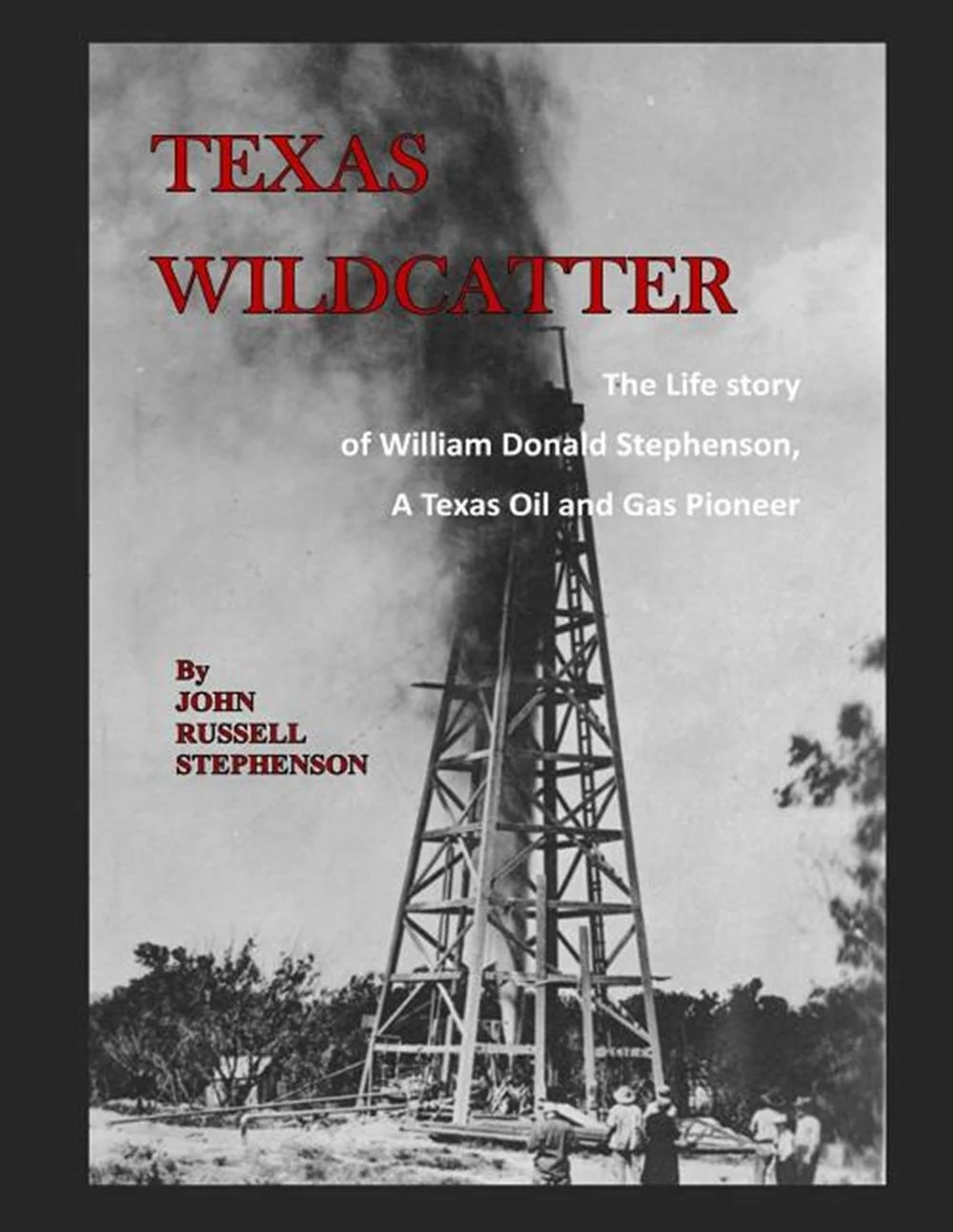

Bill D. Stephenson moved to McMullen County, about 80 miles south and slightly west of San Antonio, in 1916. His goal was to become an oil man. He had guts; he'd blown a good portion of his left hand off playing with dynamite caps at the ripe 'ol age of 11, outside Waco, but worked as a kid on drilling rigs in the Batson and Sour Lake Fields of East Texas.
He had two sons in 1916 and the family formed the Grubstake Investment Association; its first well was on the Brown Ranch north of the Frio River, not far as a buzzard flies from Colfax (Tilden). Colfax was also known as Dog Town.

In 1917 the Grubstake 1 well encountered wet gas at 830 some odd feet in a Catahoula/ Yegua sand; they tried to get 8 inch casing run on the well but it got in their face, big time. They stabbed a valve on the casing but any effort to pinch the well back caused the casing to come out of the ground. It blew like the photo above for three months before it could be shut in. Estimate flow rates were 670 MCFPD. Mr. Stephenson himself actually took the photo above, in 1917, of the No. 1 well.

Grubstake drilled three more Jackson aged wells on the Brown Ranch, all made dry gas and a little oil. The family had a big acreage position in the area and in 1923 tried to sell the deal in the Oil and Gas Journal, below. South Texas Natural Gas Company bought the deal and drilled two more wells in the area. I then laid 67 miles of pipe to San Antonio to sell the gas.
By 1922 the area around the Grubstake well was getting drilled consistently by others and good oil flows were being found in the Upper Wilcox Wales sand below the massive Carrizo Wilcox groundwater aquifer. The little town of Calliham popped up out of nowhere and became a bit of a boom town.
McMullen County was heavily mined for uranium and other minerals over the years and a decade or so later, under what is now Choke Canyon Reservoir, one of the largest unbroken meteorites in the world was uncovered and shipped to California on a big truck. Its my kind of place, McMullen County; in 2010 the entire county's population was 832.
Three bucks an acre in 1922 was a lot of money; by 2016 Chesapeake was leasing a lot of smaller tracts around and south of Tilden for $3,000 an acre and it must now have close to 500 HZ Eagle Ford shale oil wells in McMullen County recently sold or wanting, desperately, TO be sold.

One of "Mr. Donald's, sons found his old journals and photographs and wrote a book about his dad.
Grubstake Investments Association was headquartered in Three Rivers and closed its doors in 1979.
"Grubstake is a linguistic nugget that was dug up during the famous California Gold Rush, which began in 1848. Sometime between the first stampede and the early 1860s, when the gold-seekers headed off to Montana, prospectors combined grub ("food") and stake, meaning "an interest or share in an undertaking." At first grubstake was a noun, referring to any kind of loan or provisions that could be finagled to make an undertaking possible (with the agreement that the "grubstaker" would get a cut of any profits). By the 1870s, grubstake was also showing up as a verb meaning "to give someone a grubstake," and, since at least 1900, shortly after the Klondike Gold Rush, it has been applied to other situations in which a generous benefactor comes through with the funds." Webster

This was the county jail in Tilden until 1968. Tilden was called Dog Town until the late 1890's because a bunch of cowboys eradicated the entire town's dog population one night in a drunken spree of .38 caliber pistol bullets.